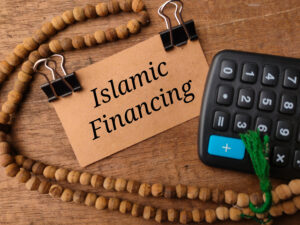Shaping the Future of Finance: Unveiling the World of Islamic Financial Products and Practices

Islamic financial products represent a fast-growing segment of the global finance industry, offering innovative solutions that comply with Islamic law, or Sharia. These products are designed to align with Islam’s ethical standards and moral values, emphasizing risk-sharing, fairness, and social welfare. This article will explore various Islamic financial products and contracts, delve into their mechanics, and understand how they contribute to the broader Islamic banking and finance industry.
Murabaha Contracts
Murabaha is one of the most famous Islamic financing structures. It involves a financial institution purchasing a good and selling it to a customer at a marked-up price, payable over time. This markup represents the profit for the institution. Unlike interest-based loans, the profit in Murabaha is fixed and not tied to the time the customer takes to pay. This ensures transparency and fairness, critical principles in Islamic finance.
Ijarah Contracts
Ijarah, the Islamic equivalent of leasing, involves the bank buying an asset and leasing it to a customer for a fixed period and price. The bank maintains ownership of the asset, but the customer gets the benefit of using it. This type of contract is popular for financing real estate, vehicles, and machinery. The fixed rental payments make Ijarah a stable and predictable financing option.
Istisna Contracts
Istisna is a unique contract used for manufacturing or construction projects. It allows a buyer to commission a manufacturer (or builder) to create a specific item or construct a project with an agreed payment plan. The payment can be in installments or a lump sum upon delivery. Istisna is flexible and can be tailored to large-scale projects, making it vital for infrastructure and real estate development.
Salam and Istijrar Transactions
Salam contracts are forward sales where the buyer pays in advance for specified goods to be delivered at a later date. This product is particularly useful in agricultural finance, helping farmers get capital before harvest. Istijrar, on the other hand, involves a series of deliveries and payments, offering flexibility to both buyers and sellers in managing cash flow and supplies.
Wakalah and Waqf in Islamic Finance
Wakalah refers to an agency contract where one party appoints another to conduct transactions on their behalf. It’s widely used in fund management, where investors entrust a manager to invest their funds under specific guidelines. Waqf, or endowment, is a charitable trust where assets are donated for social welfare, with the profits used for charitable purposes. Both Wakalah and Waqf embody the social and ethical dimensions of Islamic finance.
Tawarruq and Commodity Murabaha
Tawarruq and Commodity Murabaha are financing mechanisms involving the purchase and sale of commodities. In Tawarruq, a customer buys a commodity on a deferred payment basis and sells it for cash to a third party. Commodity Murabaha follows a similar process but is conducted between the customer, a bank, and a broker. These products are often used for liquidity management and short-term financing.
Designing Sharia-Compliant Financial Products
 Designing Sharia-compliant financial products requires a deep understanding of Islamic law and finance principles. It involves not only adhering to prohibitions against interest (Riba) and speculative transactions (Gharar) but also ensuring that investments are made in halal (permissible) industries. Islamic finance professionals must be proficient in developing products that fulfill these criteria while meeting the financial needs of modern economies.
Designing Sharia-compliant financial products requires a deep understanding of Islamic law and finance principles. It involves not only adhering to prohibitions against interest (Riba) and speculative transactions (Gharar) but also ensuring that investments are made in halal (permissible) industries. Islamic finance professionals must be proficient in developing products that fulfill these criteria while meeting the financial needs of modern economies.
Explore Islamic Finance With VIFM’s Online Courses
As the Islamic finance industry evolves, offering unique opportunities for innovation and inclusion, it significantly impacts the global financial landscape. In this context, institutions like the Virginia Institute of Finance and Management (VIFM) are crucial. VIFM offers specialized education in Islamic finance, exemplified by their course on Islamic Finance Principles and Practices. These courses are essential for equipping professionals with the skills needed to navigate this sector, ensuring the growing demand for ethical and socially responsible financial solutions is met with well-trained expertise.
